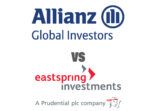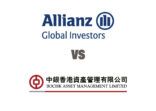Hui Tai, JP Morgan Asset Management
“The biggest mistake for me this year was the dollar,” he said during a recent media briefing in Hong Kong.
What held true for this year about the US dollar is that as the currency gets stronger, emerging markets suffer, Hui explained. “That obviously has an impact on our recommendations to clients.”
Hui said that he had underestimated the performance of the US economy, as well as the performance of US companies.
Many investment professionals were wrong on the direction of the US dollar.
In 2018 outlook reports issued in January, Standard Chartered predicted that the US dollar “will weaken modestly”. Schroders believed “the structural outlook for the dollar looks increasingly weak” and suggested a dollar bear market may be beginning. A Bank of Singapore report said “the greenback bull at the moment may be on its last legs”.
Mark Haefle, Zurich-based group managing director and global chief investment officer at UBS Wealth, said in the middle of this year that the strengthening of the US dollar has resulted in tactical changes to client portfolios.
“What has been a struggle for us is the strengthening of the dollar,” he said. “We’re surprised how vigorously the Trump administration is pursuing the topic of trade and surprised that it has strengthened the dollar as much as it has.”
At the time, the wealth manager did not anticipate that the currency would appreciate by 3.3% since the start of the year, a move that has hit client investments in emerging market currencies, equities and sovereign bonds.
JPMAM’s Hui did not predict the direction of the currency.
“If the US’ exceptional performance continues, the dollar will get stronger. But as you approach [the current levels] of valuations of the dollar and the current account deficits in the US, it’s really quite difficult for the currency to get stronger.”
Has China bottomed out?
Another mistake of Hui was underestimating how pessimistic mainland Chinese investors have been toward onshore markets.
“We’ve been suggesting that in the middle of the year, we were pretty close to the bottom of the A-share markets given their valuations and momentum,” he said. “We haven’t been down much since then but still we’ve not seen a recovery in the markets.”
China A-shares have been the one of the worst performing asset classes in emerging markets. Year-to-date, the CSI 300 Index was down -21.63% in US dollar terms, versus the MSCI Emerging Market Index’ -12.55%.
However, Hui believes that onshore sentiment is a little less pessimistic now than a few months ago, but noted that the Chinese government has to be more forceful with its stimulus to improve investor sentiment.
Sunny Ng, portfolio manager for global-multi-asset at Pinebridge Investments, would also like to know how efficient the Chinese government will carry out its planned stimulus.
“Our view at the moment is that they still have a lot of policy room, particularly on the fiscal side, with the tax cuts being a helpful type of stimulus. Taxes continue to be relatively high, so there is room to cut on that side,” Ng said recently.

















